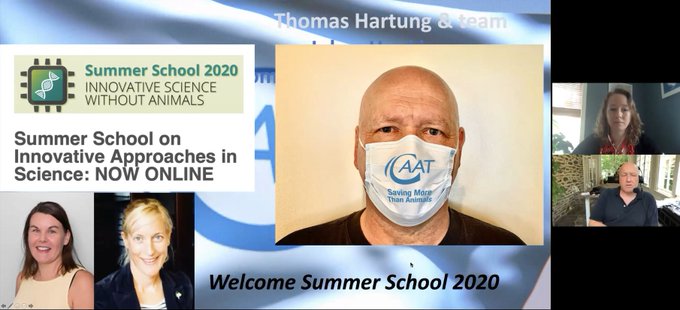Doctors Group and Public Health Experts Hold First North American Program on Nonanimal Scientific Research

WASHINGTON, D.C.—From June 22 to 25, students and early-career scientists gathered virtually for a free program of lectures, interactive sessions, e-poster presentations, and virtual engagement with speakers and attendees on innovative methods to reduce and replace animal tests in toxicology and biomedical science. Originally planned to be hosted at Johns Hopkins University, the Summer School on Innovative Approaches in Science took place as a virtual meeting due to the COVID-19 pandemic. Speakers included experts from Harvard University, Johns Hopkins University, the National Institutes of Health, the Environmental Protection Agency, the Physicians Committee for Responsible Medicine, and more.
Jointly hosted by the Physicians Committee for Responsible Medicine, Johns Hopkins University Center for Alternatives to Animal Testing, and the European Commission Joint Research Centre, the program is a response to a growing need for scientists to be conversant in new approaches in toxicology and biomedical sciences. The Summer School highlighted modern alternatives for using animals, including in vitro and computational modeling.
“By keeping this event free and open to all, we were able to connect with 250 students and early-career scientists about the need for and applicability of nonanimal scientific testing methods,” said Kristie Sullivan, MPH, vice president of research policy at the Physicians Committee for Responsible Medicine. “Scientists who are just starting their careers will benefit substantially from having greater familiarity with these effective, robust research methods.”
To speak with Kristie Sullivan, MPH, please contact Reina Pohl at 202-527-7326 or rpohl [at] pcrm.org (rpohl[at]pcrm[dot]org). More information can be found at InnovativeScience2020.org.
Media Contact
Reina Pohl, MPH
202-527-7326
rpohl[at]pcrm.org
Founded in 1985, the Physicians Committee for Responsible Medicine is a nonprofit organization that promotes preventive medicine, conducts clinical research, and encourages higher standards for ethics and effectiveness in education and research.








